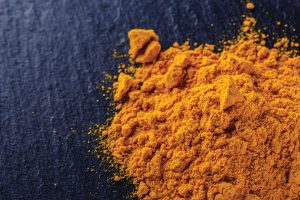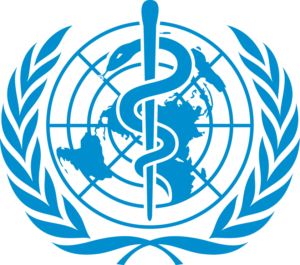Pomegranate Extract
THe pomegranate, an ancient fruit whose regenerative properties have been celebrated for thousands of years, has been a source of interest for medical researchers seeking natural agents for the prevention and treatment of degenerative diseases. Numerous experiments have shown pomegranates to contain powerful antioxidant compounds that scientists believe may inhibit atherosclerosis, cut the risk of heart disease and help to modulate high blood pressure. Pomegranate extract’s anti-inflammatory properties have shown it to be useful for arthritis sufferers, and it has also demonstrated anti-carcinogenic properties that appear to suppress certain types of cancers.
Atherosclerosis
Pomegranates are high in polyphenolic compounds, making its juice higher in antioxidant activity than red wine and green tea. The most abundant of these compounds is ellagic acid, which has been shown in research to be the antioxidant responsible for the free-radical scavenging ability of pomegranate juice.1 In animal research, pomegranate extract has also been shown to protect the antioxidant enzymes catalase, peroxidase and superoxide dismutase from the effects of toxic chemicals.2
Increased oxidative stress is a characteristic of patients with high risk for atherosclerosis development (hypercholesterolemic, hypertensive, diabetic), and the phenomenon was shown to be associated with attenuated antioxidative status. The increased oxidative stress in atherosclerotic patients is present in their blood, as well as in their arterial wall cells, including macrophages, the hallmark of foam cells formation during early atherogenesis (a condition in which an artery wall thickens as a result of the accumulation of fatty materials such as cholesterol). Researchers have confirmed the use of nutritional antioxidants such as vitamin E, carotenoids (lycopene and beta-carotene) and mainly polyphenols (such as those present in red wine, licorice root ethanolic extract or in pomegranate) by atherosclerotic animals and also by cardiovascular patients, leads to a reduction in oxidative stress and to the attenuation of atherosclerosis development
Arthritis
In a study4 funded in part by National Center for Complementary and Alternative Medicine, researchers from Case Western Reserve University and Aligarh (India) Muslim University used an animal model of rheumatoid arthritis (RA)—collageninduced arthritis (CIA) in mice—to evaluate the effects of a pomegranate extract called POMx. The animals received either POMx or water by stomach tube before and after collagen injection to induce arthritis. POMx significantly reduced the incidence and severity of CIA in the mice. The arthritic Joints of the POMx-fed mice had less inflammation, and destruction of bone and cartilage were alleviated. Consumption of POMx, the researchers also concluded, selectively inhibited signal transduction pathways and cytokines critical to development and maintenance of inflammation in RA.
Although previous studies of POMx
Found cartilage-protective effects in human cell cultures, this is the first study to observe positive effects in a live model. The researchers note that the data from this study suggest the potential efficacy of POMx for arthritis prevention, but not for treatment in the presence of active inflammation; future studies will address disease-modifying effects of POMx. They also note that clinical trials are needed before POMx can be recommended as safe and effective for RA-related use in people.
Another Case Western ReserveUniversity School of Medicine study5 showed that pomegranate fruit extracts can block enzymes that contribute to osteoarthritis (OA).The study looked at the ability of an extract of pomegranate fruit against Interleukin-1beta, a pro-inflammatory protein molecule that plays a key role in cartilage degradation in osteoarthritis, at different time points in vitro. This study demonstrated for the first time the ability of pomegranate fruit extracts or compounds derived from it may inhibit cartilage degradation in OA and may also be a useful Nutritive supplement for maintaining joint integrity and function.
Cancer
An advantage that pomegranate has is that it seems to be capable of intervening at more than one critical pathway in the process of carcinogenesis.6 Studies have shown that the pomegranate extract has many anti-carcinogenic properties, which can aid those already suffering with various types of cancer to show a slower progression or remained in remission.
An acid found in pomegranates appears to block aromatase, an enzyme that converts androgen to estrogen, a hormone that plays a role in the development of breast cancer. Many women who have had breast cancer take medicines called aromatase inhibitors to keep estrogen from stimulating tumors. Shiuan Chen, of the City of Hope cancer research and treatment center in Duarte, CA, and colleagues studied whether compounds, or phytochemicals, in pomegranates can suppress aromatase and ultimately block cancer growth. They found that 10 natural compounds in the fruit may potentially prevent estrogen-related breast cancer. While researchers believe the compounds would not be a replacement for aromatase inhibitors since they are not as potent as the real drugs, they expressed that these compounds may be helpful for prevention rather than for treatment once the cancer has started.7
When researchers at the University of Wisconsin in Madison8 incubated Prostate cancer cells with low concentrations of pomegranate extract, they observed a dose-related inhibition of cell growth. In prostate cancer cells driven by male hormones (androgens) and expressing prostate specific antigen (PSA), treatment with pomegranate extract decreased androgen receptors and PSA expression. When human prostate cancer cells were injected into mice, feeding the animals pomegranate extract delayed the appearance of tumors. Tumor growth was significantly inhibited and survival was prolonged.
Pomegranate fruit extract can block skin tumor formation in mice exposed to a cancer-causing agent, according to a report in the International Journal of Cancer. Dr. Hasan Mukhtar and colleagues from the University of Wisconsin at Madison conducted a variety of experiments to test the anti-cancer effects of pomegranate, a chemical with strong anti-inflammatory and antioxidant properties. In mice, putting pomegranate on The skin before exposure to the cancercausing substance TPA inhibited the skin swelling and excessive cell growth that typically occurs. Moreover, mice treated with pomegranate developed fewer skin tumors than untreated mice.9
Conclusion
An antioxidant powerhouse, pomegranate extract shows incredible potential for preventative health, and researchers are continuing to study areas where it can prove beneficial. In 2010, 23 clinical trials were registered with the National Institutes of Health examining the health effects of pomegranate juice or extract for diseases such as the ones discussed here as well as diabetes, lymphoma, rhinovirus infection, common cold, coronary artery disease, hemodialysis for kidney disease and more.
Resources:
• National Center for Complementary and Alternative Medicine/National Institutes of Health
• Natural Health Research Institute
• NP Nutra
• Verdure Sciences
• www.pomegranateextract.net
• www.raysahelian.com
References:
1 Gil, MI, Tomas-Barberan, FA, Hess-Pierce, B, Holcroft, DM, Kader, AA. Antioxidant activity of pomegranate juice and its relationship with phenolic composition and processing. J. Agric. Food Chem.
2000, 48(10),4581-4589.
2 Chidambara Murthy KN, Jayaprakasha GK, Singh RP. Studies on antioxidant activity of pomegranate (Punica granatum) peel extract using in vivo models.
J. Agric. Food Chem. 2002; 50(17):4791-5.
3 Rosenblat M, Aviram M. Paraoxonases role in the prevention of cardiovascular diseases. Biofactors.
2009 Jan-Feb;35(1):98-104.
4 Shukla M, Gupta K, Rasheed Z, et al.
Consumption of hydrolyzable tannins-rich pomegranate extract suppresses inflammation and joint damage in rheumatoid arthritis. Nutrition. Jul.–Aug. 2008;24(7–8):733–743.
5 Ahmed S, Wang N, Hafeez BB, Cheruvu VK, Haqqi TM. Punica granatum L. Extract Inhibits IL-1ß–Induced Expression of Matrix Metalloproteinases by Inhibiting the Activation of MAP Kinases and NF- B in Human Chondrocytes In Vitro. J Nutr 2005; 135:2096-2102.
6 Afaq F, Saleem M, Krueger CG, Reed JD, Mukhtar H. Anthocyanin-and hydrolyzable tannin-rich pomegranate fruit extract modulates MAPK and NfkappaB path- ways and inhibits skin tumorigenesis in CD-1 mice. Int J Cancer 2005; 113(3):423-33.
7 Adams LS, Zhang Y, Seeram NP, Heber D, Chen S. “Pomegranate ellagitannin-derived compounds exhibit antiproliferative and antiaromatase activity in breast cancer cells in vitro.” Cancer Prev Res (Phila). 2010 Jan;3(1):108-13.
8 Malik A, Afaq A, Sarfaraz S, Adhami VM, Syed DN, Mukhtar H. Pomegranate fruit juice for chemoprevention and chemotherapy of prostate cancer. PNAS 2005; 102:14813-14818.
9 Afaq F, Khan N, Syed DN, Mukhtar H. “Oral feeding of pomegranate extract inhibits early biomarkers of UVB radiation-induced carcinogenesis in SKH-1 hairless mouse epidermis.” Photochem Photobiol. 2010 Nov-Dec;86(6):1318-26. Doi: 10.1111/j.1751- 1097. 2010.00815.x. Epub 2010 Oct 14.












